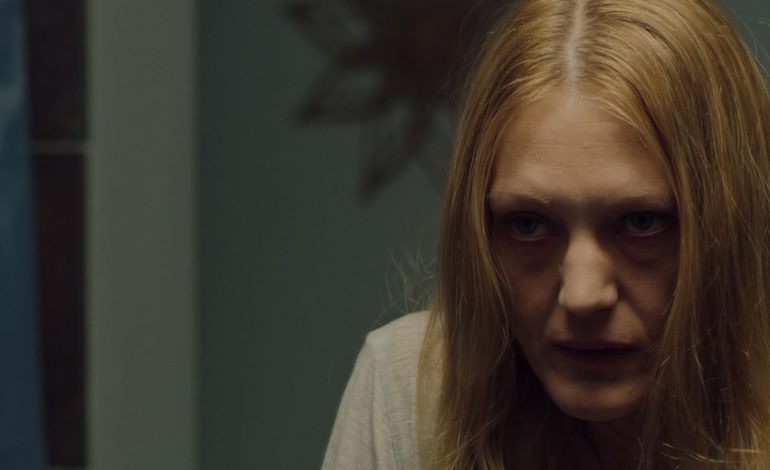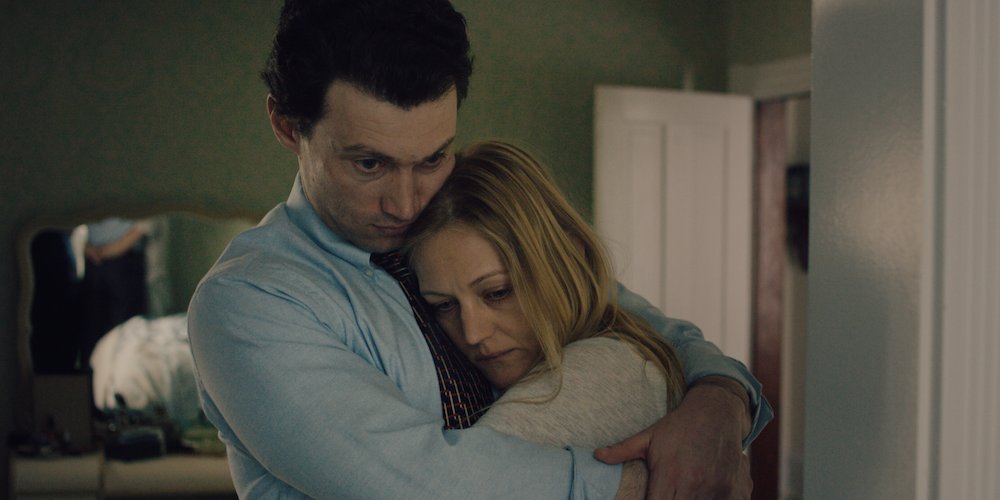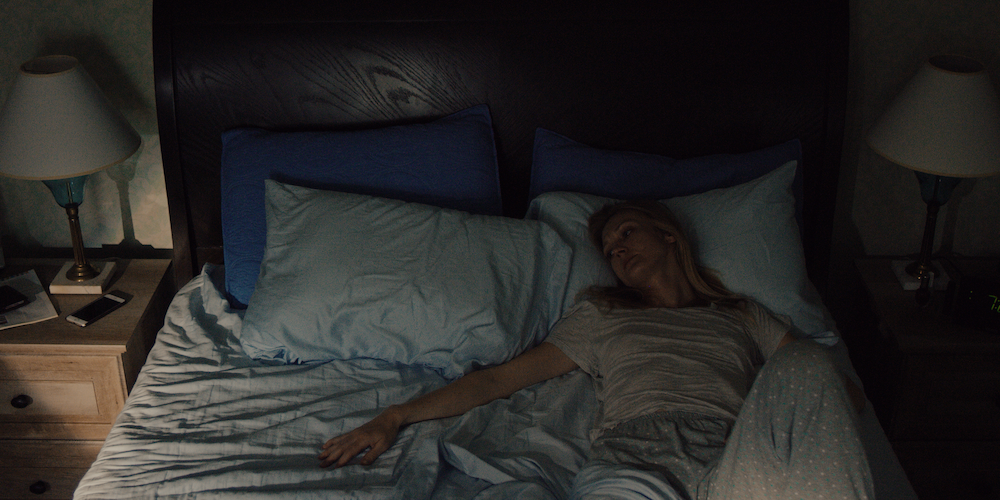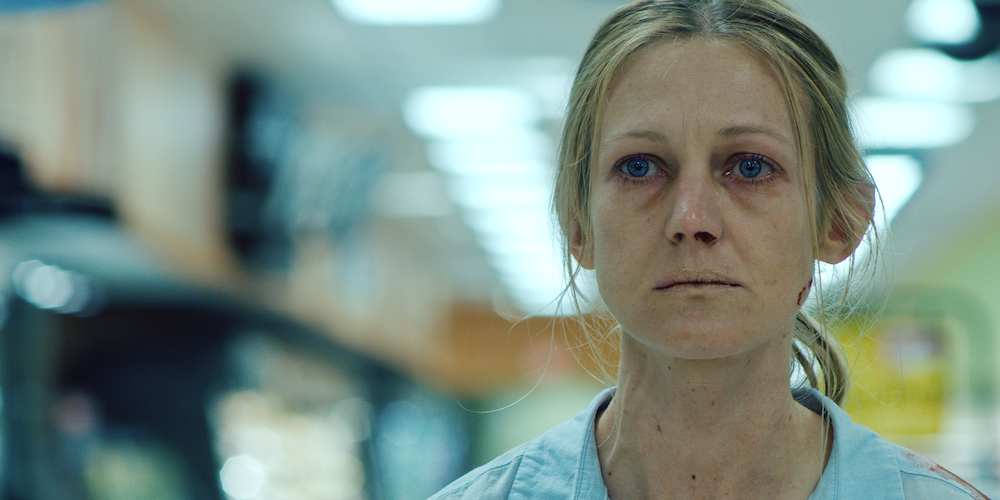

Dispelling the myth of an idyllic middle-class life is hardly a new idea. From the serious to the silly, from Blue Velvet to Edward Scissorhands, filmmakers have been obsessed with exposing the dark underside of the picture-perfect American Dream. The indie horror-thriller The Swerve may not offer much new in the way of social commentary, but treads these same waters from an interesting perspective. The film depicts the life of an ideal family that seemingly has it all, and by all rights should be happy. Yet the happiness that comes from their comfortable existence is so fleeting and fragile that it can be completely upended by the smallest of interruptions. And in The Swerve, the interruption that tears a family apart and sends a tired housewife spiraling into full-blown madness is about as small as they come: a single, solitary mouse.


On the surface, Holly (Azura Skye) has a perfect life. She has a nice house, two kids, a husband with a blossoming career at the local supermarket, a good job as a high school English teacher, and a sister that loves apple pie. The problem with her seemingly perfect life is that, if you take more than the most superficial look at any part of it, it kind of sucks. Her kids, Lee and Ben (Liam Seib and Tean Phillips) are selfish, foul-mouthed teen monsters. Her husband Rob (Bryce Pinkham) is a cold, dismissive womanizer. One of her students, Paul (Zach Rand), spends his class time drawing nude pictures of her in his notebook. Even Holly’s sister Claudia (Ashley Bell), an addict fresh out of rehab, would rather spoil a family dinner by telling embarrassing stories about Holly’s childhood weight problem than eat the pie that Holly made especially for her. Holly’s life is a constant stream of abuse, disrespect, and obligation that leaves her unhappy and unable to sleep. She takes pills for her insomnia, but even in dreams she is not safe, and her nights are plagued by vivid nightmares.


When she finds a small mouse scurrying around the kitchen, she becomes fixated with the task of eliminating the tiny, disease-ridden vermin. However, as she consistently fails to kill the pest, the added strain of this miniscule battle of wills turns into a tipping point for her sanity as her life and mental state continue to decay. The meds slowly transform her into a walking zombie, trudging blearily through her own life, and the dreams get worse. In one such dream, she drives a car full of belligerent kids off the road. When she awakes from her coma-like sleep and learns that a couple of kids died in a very real car crash that mirrors her dream, she begins to lose her grip on reality. In her drug induced stupor, was she responsible for the crash? Are her husband’s infidelities real, or projections? Is anything she’s experiencing real?


The film takes its time in answering or even asking these questions, which could be seen as a flaw, but actually adds to the intrigue. The early scenes of Holly’s humdrum, relatively sane life are a bit generic as indie movies go. The dialogue is fine, the acting is fine. The music, cinematography, and editing are all fine, but there isn’t really much to distinguish the film from any generic, middle-of-the-road family drama. What ultimately makes the film stand out is Skye’s incredible depiction of Holly’s slow, creeping, and deliberately paced decline. She begins as a character so benign as to run the risk of being uninteresting. Or, to put it another way, a real person. But over time, as her appearance morphs into that of a catatonic meth addict, Skye does a masterful job of shifting between the emotions that drive her to insanity: confusion, overwhelming sadness, and pent-up rage. The further Holly spirals and the weirder her behavior becomes, the more she draws you into the confused state of her own mind, where an increasingly disproportionate struggle with a mouse can build to a devastating climax that is truly disturbing.
Verdict: 4 out of 5 stars
The Swerve doesn’t exactly say anything new about the lie of middle-class perfection, but it does approach the subject in a delightfully original way that is as rich with genuine heartbreak as it is with gut-churning terror. It is the rare sort of horror story that doesn’t just make you feel scared, but makes you genuinely feel for the characters. Azure Skye’s performance may not seem like much at first, but by the end, she drags you so far into Holly’s blurred reality that you will have trouble remembering the normal middle-class mom she once was. Though the beginning may leave some less patient viewers reaching for the remote, those who make it to the final payoff will find it well worth the journey.
